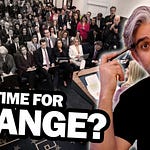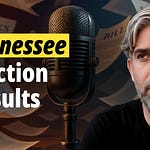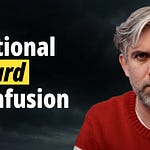Justin Trudeau, Canada’s long-standing Prime Minister, announced his resignation this week, marking a seismic shift in the nation’s political landscape. Trudeau’s departure comes after nearly a decade as Prime Minister and thirteen years as leader of the Liberal Party. His resignation was not entirely unexpected but has sparked a wave of introspection within Canadian politics.
Here is what you need to know if you don’t care about Canada unless they’re playing hockey or changing heads of state as told to us this episode by Evan Scrimshaw.
The Breaking Point: Why Trudeau Resigned
Trudeau’s decision to step down was a culmination of mounting pressure from within his party and worsening public opinion. In recent months, his leadership faced escalating dissent. A pivotal moment was the resignation of the finance minister, which signaled deep fractures within the Liberal Party. Over the holiday season, Trudeau faced an ultimatum from his caucus—resign or face a vote of no confidence.
Several factors contributed to Trudeau’s plummeting support:
Declining Poll Numbers: Trudeau’s approval ratings had been steadily eroding, with the Liberal Party polling over 20 points behind the opposition Conservative Party.
Special Election Defeats: Losing in traditionally strong Liberal ridings signaled waning public support.
Policy Disconnect: While many of Trudeau’s policies were popular in principle, his personal brand had become a liability. Voters who liked Liberal initiatives often dismissed them outright when they were linked to Trudeau.
Trudeau’s tenure will be remembered as one of bold progressive initiatives juxtaposed with ethical controversies. On the positive side, his government achieved significant reductions in child poverty, lowered carbon emissions, and introduced affordable childcare programs. Yet, his administration was marred by scandals, including:
Ethics Violations: Pressure on the attorney general to favor a Quebec-based company, SNC-Lavalin, during a corruption probe.
Conflicts of Interest: Controversies surrounding contracts awarded to organizations with personal ties to Trudeau’s family.
Housing Crisis: Critics argue Trudeau’s inaction exacerbated Canada’s housing affordability crisis, with rents and mortgage rates soaring during his leadership.
As Scrimshaw put it, Trudeau’s administration embodied “reckless disregard” for ethical boundaries. While these issues might have been survivable individually, collectively, they eroded trust in his leadership.
Trudeau’s resignation has thrown the Liberal Party into a leadership race. He will remain interim Prime Minister until March, with no parliamentary sittings until then. Key contenders for his replacement include:
Chrystia Freeland, the current finance minister and one of Trudeau’s closest allies.
Mark Carney, former Bank of Canada and Bank of England Governor.
Anita Anand, Minister of National Defence.
Other candidates, including Francois-Philippe Champagne, Dominic LeBlanc, and former B.C. Premier Christy Clark.
The party faces a critical choice: selecting a leader who can halt its decline and prepare it for the next general election. Scrimshaw warns that without decisive leadership, the Liberal Party risks being overtaken by the New Democratic Party (NDP) or marginalized altogether, as seen historically with the UK’s Liberal Party being replaced by Labour.
As Trudeau exits, the Conservative Party, led by Pierre Poilievre, appears poised to seize power in the next election. Poilievre, a pragmatic and relatively moderate conservative, has maintained focus on fiscal discipline while distancing himself from extreme social conservatism. The scale of the Conservative victory—whether narrow or overwhelming—will shape the trajectory of Canadian politics for years to come.
Trudeau’s political obituary is one of contrasts. He entered office as a symbol of youthful energy and progressive ideals, but over time, his administration became a cautionary tale of hubris and ethical lapses. His departure offers an opportunity for renewal within the Liberal Party and Canadian politics at large. Yet, the path forward is fraught with challenges, as the party grapples with its identity and viability in a rapidly shifting political landscape.
Chapters
Opening and Introduction (00:00:00–00:00:45)
General overview of topics, including Trudeau’s resignation, Zuckerberg’s changes at Meta, and upcoming political discussions.
The Revival of Government (00:00:45–00:01:25)
Commentary on the return of political activity in the House and the Trump administration’s cabinet hearings.
Justin Trudeau Resigns (00:01:25–00:08:45)
A detailed discussion of Trudeau’s resignation, his legacy, and the future of the Liberal Party.
Global Political Trends and Liberal Party Risks (00:08:45–00:12:15)
Insights into parallels between Canadian and UK politics, the Liberal Party’s identity crisis, and risks of being overtaken by the NDP.
Future Leadership of the Liberal Party (00:12:15–00:14:22)
Breakdown of potential leadership candidates and their implications.
Conservatives' Prospects and Pierre Poilievre (00:14:22–00:21:57)
Analysis of Poilievre’s leadership style and the Conservative Party’s likely dominance in the next election.
Discussion with Tom Merritt on Meta (00:39:00–00:41:07)
A conversation with Tom Merritt on the implications of Meta's changes for political and social discourse.
The Trump Administration’s Strategy (00:26:23–00:29:56, 00:42:00–00:49:20)
Overview of Donald Trump’s legislative plans, reconciliation tactics, and the challenges facing the House and Senate.













